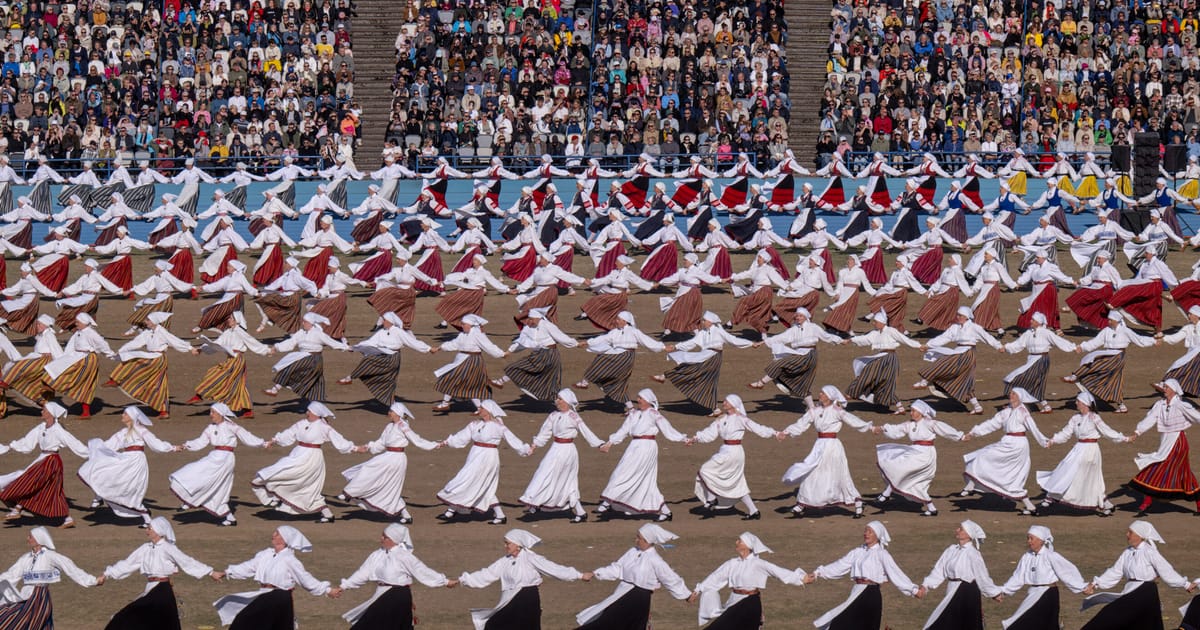

In an ever-evolving world, the dance between preserving cultural heritage and embracing modern diplomacy continues to shape our global landscape. One such vivid portrayal of cultural identity and peaceful nationalism is the long-standing tradition of Estonia’s Song and Dance Festival. Celebrated as a bastion of national pride, this festival showcases how a nation can exude strength without posing a threat. Through harmonious melodies and vibrant dances, participants and spectators alike partake in an event that transcends mere performance, becoming a beacon of cultural solidarity and peaceful co-existence.
In parallel with such cultural affirmations, the European Union finds itself amidst intricate negotiations regarding its future budget. The proposal for a €1.717 trillion budget, marking a significant increase from previous figures, reflects the EU’s commitment to addressing emerging challenges while preparing for the years leading up to 2028. Despite the late-night deliberations, the final decision aims to strike a balance between fiscal responsibility and proactive funding for numerous initiatives across member states. These financial deliberations point towards a comprehensive approach to sustainable growth and unity.
On the diplomatic stage, Europe demonstrates remarkable Realpolitik in engaging with the United States to support Ukraine amidst geopolitical tensions. By advocating for shared responsibility in providing defense aid, European nations successfully navigated complex international dynamics without confronting Russia directly. This pragmatic approach not only illustrates effective diplomacy but also underscores a commitment to collective security in times of uncertainty.
Still, within these geopolitical negotiations, calls for equitable contributions extend across the Atlantic. European leaders have urged the U.S. to partake equally in the responsibility of supplying the necessary defense systems to Ukraine. This appeal for shared investment reflects an ongoing dialogue about the distribution of global security costs, aiming to bolster cooperation and uphold collective security agreements.
Meanwhile, relations between China and Australia highlight another facet of modern diplomacy. In the shadow of geopolitical tensions and trade challenges, Chinese President Xi Jinping emphasizes the importance of unwavering cooperation with Australia, despite external pressures. This outlook was reiterated during a meeting with Australian Prime Minister Anthony Albanese, where both leaders expressed a mutual commitment to finding common ground amidst differences. By prioritizing stability and collaboration, both nations exemplify a measured approach to fostering international relations while pragmatically navigating intricate diplomatic circumstances.
These narratives illustrate an interconnected world where cultural celebrations and international diplomacy intersect, weaving a rich tapestry of unity, resilience, and cooperation. As nations continue to engage both culturally and politically, the persistent themes of balance and harmony serve as guiding principles, ensuring a more interconnected and peaceful global future.
Source: {link}
